How to Write a Great CV: The Complete Guide
Are you preparing to start applying for jobs but your resume needs some polishing? Perhaps you’re ready to gain work experience with your first casual job, or you’re a recent school leaver looking for something more substantial to start your career. Either way, your CV is the first point of introduction for employers, so it’s crucial that it highlights your skills, strengths, leadership abilities and attention to detail.
We recently hosted an online workshop to give our candidates a coaching session on how to write a solid CV and we’d love to share some of the wisdom from that session with as many people as possible. Read on to find out how to write a CV, what to include, what to leave out and the major mistakes to avoid.
Nail Down the Structure of Your Resume
An example of a good CV structure follows this outline:
• Contact Information
(your full name, phone number and email address)
• Professional Summary
• Key Skills
• Key Achievements
• Work Experience (if applicable)
• Education
• Volunteering (or notable extra-curricular activities, if you’ve done any)
• References
While some of these sections may not apply to you, they provide a good starting point for structuring your resume. Make sure every section you’re including has a clear heading in bold font, to make it easier for the recruiter or hiring manager to read at a glance.
Showcase Your ‘Soft’ Skills
Before we get into the finer details of resume writing, it’s essential you understand what employers are looking for when they’re reading through job applications and interviewing people.
Although there are many types of technical skills relevant to specific jobs, there’s also a broader range of ‘soft’ skills. These are sometimes referred to as ‘transferable’ skills because they apply to virtually every job and industry in some form. Some examples include:
• Reliability: Punctuality, honouring promises to carry out or finish something.
• Leadership traits: Showing initiative, the ability to work independently and unsupervised, working within a team or lead a team.
• Attitude and mindset: Positivity, patience, a can-do attitude and being approachable.
• A strong work ethic: Showing sustained commitment to an activity or task for a long period of time.
• Strong communication skills: Excellent writing and verbal skills.
• Signs of maturity, dedication, and commitment: Your overall willingness to learn new things and apply what you’ve learned.
Whether you’ve had previous work experience or not, it’s possible to have many of these skills through a variety of life experiences, such as your education, hobbies and community activities. Have a think about what you’ve learned from informal work such as babysitting, gardening, volunteering, or your involvement in a school program.
You can also mention your excellent grades, a leadership role you had at school or your perfect school attendance record, to name a few examples.
Demonstrate Your Technical Skills
In contrast to soft skills, technical or ‘hard’ skills are easily quantifiable or measurable. Examples of technical skills can include office software (Google G Suite, Microsoft Office), or specialist platforms (Adobe Photoshop, HootSuite). Driving a vehicle, counting cash and balancing money, operating specific tools or machinery are other examples.
Think about what physical, technology, mathematical or other technical skills you have that are relevant to the job you’re applying for, and include them on your CV.
Include a Professional Summary
The Professional Summary is a snapshot of who you are – think of it as your 1-minute elevator pitch, or what you would say to the head of a company if they asked, ‘tell me about yourself and why should I hire you?’
Crafting a Professional Summary is also good practice for writing cover letters. You can use key points from it in future job applications that require a letter.
Here are a few tips to help you produce a winning summary:
• Write a maximum of 4-5 sentences summarising your key attributes, skills and experience. There’s no need to write your full autobiography here – only include the highlights of your professional history.
•
Break it down into four sections: 1) Your current situation (e.g., work or study), 2) your experience, 3) your key skills and 4) why you’d be an asset to the business.
• Ask your peers or mentors for advice – People who know you well can help you describe yourself in new and honest ways.
• Read it out loud to make sure it flows and makes sense. It should sound natural and like you are speaking directly to the hiring manager.
Describe Your Skills and Achievements: Do’s and Don’ts
Do:
•
Use bullet points: These make the best impact and keep your resume tidy.
•
Include between 5-7 key skills: Be sure to highlight skills that relate to leadership.
•
List specific achievements: Between 1-3 is enough. Achievements can include awards, short courses, employee of the month or similar recognitions.
•
List any roles with leadership you’ve had: E.g., sports captain, school captain or prefect, and any promotions at work.
Don’t:
•
List skills and achievements in just a couple of words. You should briefly explain them with a sentence.
• Include jokes or information that might be confidential. Doing either of these will make you look unprofessional.
•
Include anything untrue. It should go without saying – don’t make things up. You’ll get found out quickly.
•
Overcomplicate your expertise. Remember: core skills are simple and transferable.
List Your Work Experience
To outline your work experience, list each position in reverse chronological order, with your most recent job or volunteer role at the top. Include the month and year you started and ended each role, including any changes within each role, such as promotions or changes to your job title.
For each position, write a brief description of what duties and responsibilities you had, and your key achievements.
List Your Education and Qualifications
This section is relatively simple: list each certificate, diploma, degree and any other qualifications you have in reverse chronological order, in this format:
Bachelor of Commerce
University of Western Sydney, Penrith, NSW
Completed May 2021
Higher School Certificate
Glenwood High School, Glenfield, NSW
Completed November 2019
As you acquire more qualifications, add your most recent and relevant education to the top of the list. It’s unlikely an employer will be interested where you went to high school a few years after you’ve completed a degree, diploma or apprenticeship.
Include References
We recommend including two professional references (a current or former manager, principal or coach) and one personal reference. For each referee, only include their full name, job title or relationship to you, and their telephone number.
Another key CV tip: Make sure you’ve sought permission from each person to confirm they’re willing to be your reference!
The Final Review of Your CV
Now that you’ve got the structure and content of your resume worked out, there are a few final tips to run through:
• Include your full name and current contact information at the top of the first page. The correct phone number and email address are essential so people can get in touch with you easily.
• Proofread your resume. Preferably more than once to avoid any errors in spelling or grammar.
•
Space out the body text with 1.5 spacing to prevent it from looking cluttered.
•
Keep your whole resume to 1-2 pages maximum. Anything longer than this is unnecessary for just about everyone.
• Use bullet points.
•
Use clear, readable fonts. Calibri Body or a similar font is easily readable on most devices.
Also, make sure the font size is consistent – size 11 or 12 is best.
• Don’t be afraid to include types of work or study experience with short durations. If you’re new to work or have just finished studying, add emphasis on your foundational skills over technical skills.
Summary
Writing out a full CV can feel daunting at first, but it will get easier with more time and work experience under your belt. Your resume is a living document you’ll be updating for your entire career, so remember to keep all information current and edit it to include new roles, skills and achievements.
A good CV is one that presents the best version of you in a professional way, without lies or exaggeration. It’s important to understand your strengths, be confident and own the experiences you’ve acquired so far.
Are you looking for more tailored resume advice and help with getting job interviews? Get in touch with our team of business services, sales, marketing and digital recruitment specialists using the form below. For more practical job search tips, keep an eye out for our next live session!








